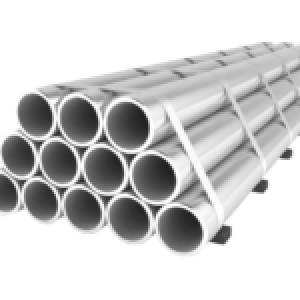Description
Steel: The Ultimate Material for Strength and Versatility
Steel, an alloy primarily of iron and carbon, stands as a cornerstone of modern construction, manufacturing, and countless applications. Its exceptional properties make it a versatile and enduring material, capable of withstanding immense stress and shaping countless industries.
Key Features & Benefits:
- Exceptional Strength and Durability: Steel's high tensile strength allows it to withstand significant loads and pressures, making it ideal for structural applications like buildings, bridges, and vehicles. Its resistance to wear and tear ensures long-lasting performance and minimizes maintenance needs.
- High Tensile Strength: This crucial property allows steel to bear heavy loads without deformation, making it indispensable in high-stress environments. Specific grades of steel boast exceptionally high tensile strength, tailored to demanding applications.
- Formability and Weldability: Steel can be easily shaped and molded through various processes such as rolling, forging, and casting. Its excellent weldability allows for seamless joining of components, facilitating complex designs and efficient manufacturing.
- Variety of Grades and Properties: The properties of steel can be precisely tailored by adjusting the carbon content and adding alloying elements. This results in a wide array of grades, each with unique characteristics optimized for specific purposes. Examples include:
- Carbon Steel: A cost-effective option offering good strength and ductility.
- Alloy Steel: Enhanced strength, toughness, and corrosion resistance through the addition of elements like chromium, nickel, and molybdenum.
- Stainless Steel: Exceptional corrosion resistance, often used in food processing, medical equipment, and architectural applications.
- High-Strength Low-Alloy (HSLA) Steel: Combines high strength with good weldability and formability, reducing weight while maintaining structural integrity.
- Recyclability: Steel is 100% recyclable without loss of quality, making it an environmentally responsible material. Recycling steel significantly reduces energy consumption and minimizes environmental impact compared to producing virgin steel.
- Cost-Effectiveness: While the initial cost might vary depending on the grade, steel generally provides excellent value for money due to its durability, longevity, and recyclability, leading to long-term cost savings.
Applications:
The versatility of steel is reflected in its widespread use across numerous sectors:
- Construction: Buildings, bridges, skyscrapers, pipelines, and infrastructure.
- Automotive: Vehicle bodies, chassis, engines, and components.
- Manufacturing: Machinery, tools, equipment, and industrial components.
- Energy: Power generation, pipelines, and wind turbine towers.
- Aerospace: Aircraft components, landing gear, and engine parts.
- Medical: Surgical instruments, implants, and medical equipment.
Choosing the Right Steel:
Selecting the appropriate steel grade depends on the specific application and required properties. Factors to consider include strength, ductility, corrosion resistance, weldability, and cost. Consulting with a materials engineer can help determine the optimal steel for your needs.
Conclusion:
Steel's remarkable combination of strength, durability, versatility, and cost-effectiveness makes it an essential material in countless industries. Its enduring legacy and ongoing innovation ensure its continued importance in shaping the world around us.
